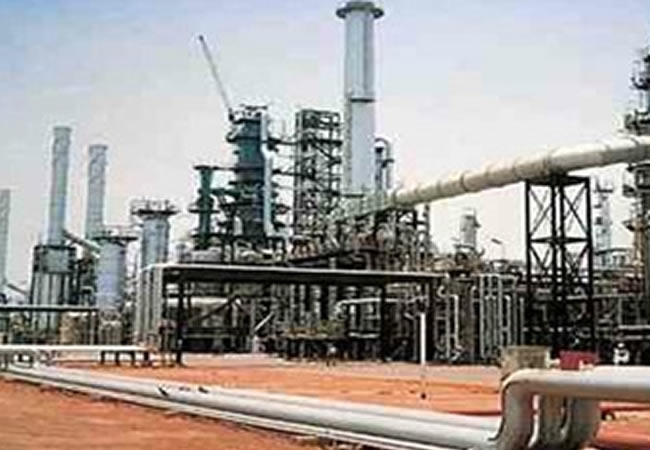The heart of Nigeria’s oil refining capacity, the Warri Refining and Petrochemical Company (WRPC), has become the stage for a protracted labor dispute, as casual workers employed by the Nigerian National Petroleum Company Limited (NNPCL) entered the sixth day of their protest. These workers, crucial to the refinery’s operations, are demanding improved welfare, recognition as “critical staff,” and a significant increase in their meager salaries. Their grievances underscore the deep-seated issues of inequality and exploitation within the Nigerian oil and gas sector, raising concerns about potential sabotage of President Bola Tinubu’s reform agenda. The protesting workers allege that powerful cabals within the industry are actively working to undermine the government’s efforts to revitalize the nation’s refineries, potentially profiting from the continued dysfunction and importation of refined petroleum products.
The protest, which began on Monday, has brought operations at the Warri refinery to a standstill. The workers, represented by Dafe Ighomitedo, have vowed to remain at the protest site until their demands are met. They claim their salaries are “peanuts,” a stark contrast to the substantial earnings of permanent staff. This significant pay disparity highlights the two-tiered system within the refinery, where casual workers, despite their essential role in maintaining operations, are treated as second-class employees. Their years of dedicated service, often during their most productive years, have gone largely unrewarded, leaving their families struggling to make ends meet. The workers’ frustration is palpable, fueled by a sense of injustice and the perceived indifference of management to their plight.
The workers’ accusations of sabotage against powerful figures in the oil and gas sector add another layer of complexity to the situation. They believe these individuals are actively working against President Tinubu’s efforts to reform the sector, potentially benefiting from the continued reliance on imported refined products. This alleged sabotage casts a shadow over the government’s attempts to revive the nation’s refining capacity, potentially hindering efforts to achieve energy independence and economic stability. The workers’ claims warrant thorough investigation to determine the validity of these accusations and address any potential corruption within the industry.
The protestors directly appealed to Bashir Ojulari, the newly appointed Group Chief Executive Officer of NNPCL, to intervene and address their grievances. They pleaded with him to recognize their crucial role in the refinery’s operations and end the “needless embarrassment” caused by the ongoing protest. The workers’ appeal underscores their desperation for a resolution and their belief that Ojulari has the power to effect meaningful change. They urged him to prioritize the welfare of casual staff as part of his reform agenda, recognizing their status as “slave workers” deserving of fair treatment and compensation. The workers’ direct appeal to the GCEO highlights the urgency of the situation and the need for immediate action to resolve the dispute.
The protest has exposed the precarious position of casual workers within the Nigerian oil and gas sector, raising fundamental questions about labor rights and fair treatment. These workers, who are essential to the functioning of the refinery, are often subjected to exploitative practices, including low wages, lack of benefits, and job insecurity. Their struggle mirrors the broader challenges faced by casual workers across various industries in Nigeria, highlighting the need for stronger labor laws and protections. The ongoing protest at the WRPC serves as a stark reminder of the human cost of inequality and the urgent need for systemic change within the Nigerian labor market.
The prolonged protest at the Warri refinery has far-reaching implications for Nigeria’s economy and energy security. The continued shutdown of the refinery disrupts the country’s domestic refining capacity, increasing reliance on imported petroleum products and exacerbating the already significant financial burden on the nation. Moreover, the labor dispute highlights the underlying tensions and inequalities within the oil and gas sector, potentially jeopardizing future investment and development. A swift and equitable resolution to the protest is essential to restore stability, ensure the smooth operation of the refinery, and foster confidence in the government’s reform agenda. The ongoing situation underscores the interconnectedness of labor rights, economic stability, and energy security in Nigeria, demanding a comprehensive and sustainable approach to address these complex challenges.














